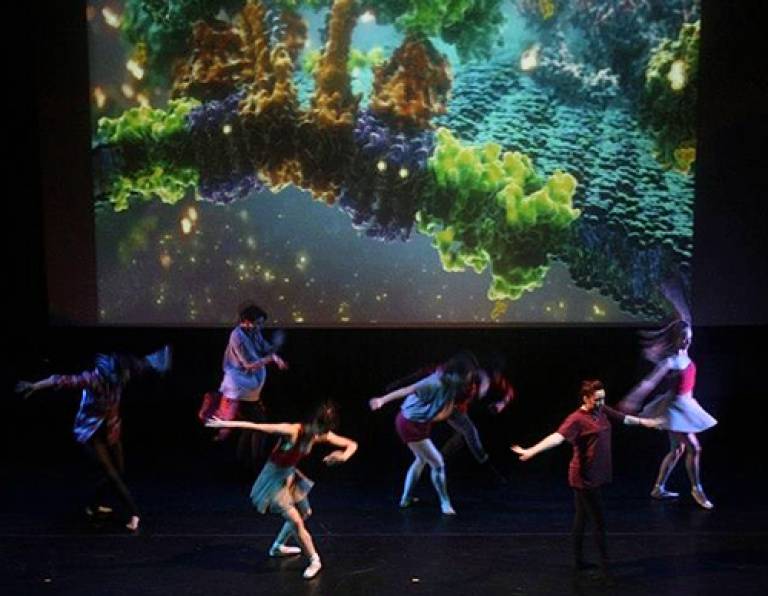UCL students and researchers are merging neuroscience with art to shed light on lesser-known neurological conditions
2 March 2017
Did you know that neurological conditions constitute the leading cause of disability worldwide? When presented with the term 'neurological condition', chances are that you'll be reminded of mood disorders, and while the recent increase widespread understanding of these conditions is heartening to see, it also reveals our need of knowledge about a class of equally disabling but less well-known neural and spinal cord disorders.

Some great work has been done to raise awareness for motor neurone disease (MND/ALS), as you might recall with fond memories of the ice bucket challenge a few years ago. Despite this, there still exist a whole host of neurological and spinal cord conditions that patients struggle with every day, but that go largely unnoticed in public knowledge and understanding.
There is yet no universally effective treatment for multiple sclerosis, where the immune system attacks neurons, impairing control of bodily actions; nor a cure for Huntington's disease, a neurodegenerative disease that impairs cognition and ultimately leads to dementia.
However, because these conditions' prevalence and socioeconomic impact are less in the public eye, less funding is funnelled to finding treatments to improve the quality of life for patients. And so, even if these conditions can often be severely debilitating and life-threatening, the lack of these two key factors has sadly led to the failed outcomes for these neurological conditions.
Movement for Hope
UCL students and researchers are trying to shed light on lesser-known neurological conditions through Rewired: The Brain, Art and Innovation 2017, an event being held on March 10, which merges neuroscience, art and innovation.

A team from UCL, for the fourth year running, has joined forces with Movement for Hope, a charity which designs and delivers art-science events that support research and people with neurological conditions. The charity was founded by Dr Amber-Michelle Hill, a recent UCL PhD graduate.
Previous collaborative public engagement events between UCL and the charity, include Neurology and Me (2012), Seize the Day (2016) and Neuro-Creativity (2016) and previous instalments of the upcoming arts-science event, Rewired: The Brain, Art and Innovation (2017). These events have provided support to 45 scientists, over 300 patients and have engaged over 100,000 people across the globe in the dissemination of scientific developments.
Rewired: The Brain, Art and Innovation 2017
This year's event will feature the work of a dynamic range of field-leading neuroscience researchers, and stories of patient advocates. Combined with the work of a number of prolific artistic performers, each performance-presentation will showcase recent developments in neuroscience, to inform people from any background, in a medium you would be hard-pressed to find anywhere else.
The event will feature a talk on augmented reality technology applications for dementia patients, TED speaker Sue Austin will discuss surpassing the limits of her disability to reach new heights and depths, and a patient's journey through diagnosis, challenges, triumphs and hope.
Emma Biondetti, co-director at Movement for Hope and a PhD student at the UCL Department of Medical Physics and Biomedical Engineering said, "Movement for Hope's Rewired event struck me for its ability to bridge the gap between neuroscience research and patient stories through the creation of appealing and innovative art-science performances. Volunteering at Movement for Hope has informed my experience as a PhD student by deepening my understanding of the challenges medical physics research needs to tackle from a patient's perspective.
"Moreover, working on the creation of art-science events has brought together two of my main passions - research and music - and is teaching me how to create engaging and informative cross-disciplinary projects. It is therefore with great excitement that I am working at this year's edition of Rewired, which will bring together leading neuroscience researchers, inspiring patient-advocates, top artists and innovators to create performances that will reshape the way people think about neurological conditions."
Rewired: The Brain, Art and Innovation 2017 will be held at the Royal Geographical Society's Ondaatje Theatre on 10 March 2017 at 7pm.
Chatrin Suksasilp, First year Psychology and Language Sciences BSc student
 Close
Close

